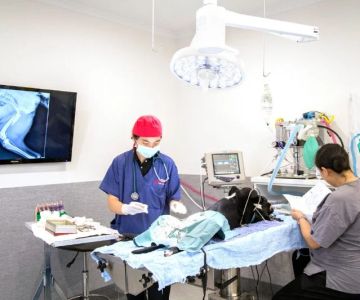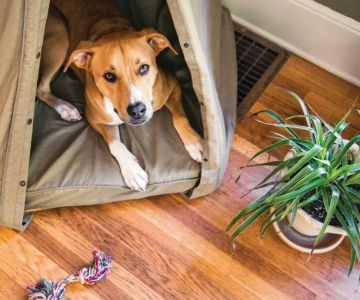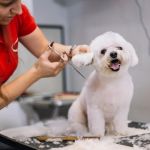
How to Vet & Interview a Prospective Veterinarian: Essential Tips for Pet Owners
- Understanding the Role of a Veterinarian
- Key Questions to Ask When Interviewing a Veterinarian
- Evaluating Veterinary Facilities and Practices
- Personalized Care and Building Trust with Your Veterinarian
- Real-Life Experience: Choosing the Right Veterinarian
- Final Thoughts and Recommendations
1. Understanding the Role of a Veterinarian
Choosing the right veterinarian for your pet is one of the most important decisions you will make as a pet owner. A veterinarian is not just a healthcare provider for your pet, but also a partner in ensuring the well-being of your furry family member. Their role extends beyond routine check-ups and vaccinations – they are there to help with preventative care, diagnosis, treatment of illnesses, and even offer guidance on nutrition and behavior.
Veterinarians also specialize in various areas, including general practice, emergency care, surgery, and specialty fields like dermatology or cardiology. Understanding these roles can help you better assess your pet's needs and determine which type of vet would be the best fit for your pet's condition and lifestyle.
2. Key Questions to Ask When Interviewing a Veterinarian
When interviewing a prospective veterinarian, it's crucial to ask the right questions to ensure that the vet is the right fit for both you and your pet. Here are some essential questions to guide your interview:
- What is your experience with my pet’s breed or condition?
Some vets may have more experience treating certain breeds or conditions, which can make a significant difference in your pet’s care. - What are your emergency procedures?
Inquire about the clinic’s approach to emergencies, after-hours care, and if they have a network of specialists. - How do you approach preventive care?
Ask about their approach to preventative measures such as vaccinations, dental care, and parasite prevention. - What is your policy on communication?
Clear communication is vital for a strong relationship with your vet. Discuss how they provide updates, share test results, and handle concerns. - How do you handle the cost of treatment?
It's important to understand their pricing structure and whether they offer payment plans, insurance assistance, or discounts for multiple pets.
3. Evaluating Veterinary Facilities and Practices
Once you’ve narrowed down a few potential veterinarians, evaluating their facilities and practices is essential. Here’s what you should look for:
- Cleanliness and Organization: A well-maintained facility reflects the level of care and attention to detail the clinic offers. Check if the area is clean, organized, and equipped with modern medical equipment.
- Staff Professionalism: Observe how the staff interacts with you and your pet. Are they friendly and professional? Do they make you feel comfortable and confident in their abilities?
- Comfort for Your Pet: Consider how your pet reacts in the space. Are there areas where pets can relax, or is the environment stressful? A good vet’s office should provide a calm atmosphere that puts pets at ease.
Additionally, you might want to consider whether the facility offers services such as boarding, grooming, or behavioral counseling, which can add convenience and a holistic approach to pet care.
4. Personalized Care and Building Trust with Your Veterinarian
Building a relationship with your veterinarian is crucial to ensuring your pet’s long-term health. A good veterinarian will take the time to understand your pet’s unique needs, preferences, and behaviors. They should be willing to work with you to develop a personalized care plan that aligns with your pet's age, breed, and specific health concerns.
Trust is at the heart of any successful vet-pet-owner relationship. You should feel comfortable discussing any concerns you have about your pet's health, and your vet should be open to listening and providing solutions tailored to your pet's needs.
5. Real-Life Experience: Choosing the Right Veterinarian
To illustrate the process, let’s take a look at Jane, a cat owner who was seeking a new vet for her aging Siamese cat, Bella. After interviewing a few local veterinarians, Jane asked about their experience with senior cats and their approach to pain management for aging pets. One vet shared a detailed plan, discussing both medical and non-medical treatments for senior cats. This thoughtful approach reassured Jane, and she felt comfortable trusting this vet with Bella's ongoing care.
Jane also visited the clinic and was impressed with the modern equipment, the calming environment for cats, and the friendly staff. Bella was immediately at ease during the initial check-up, and Jane was able to develop a strong rapport with the vet. The personalized care Bella received made all the difference in keeping her comfortable and healthy during her later years.
6. Final Thoughts and Recommendations
Choosing the right veterinarian is an important decision that will impact your pet's health and well-being. By conducting thorough research, asking the right questions, and evaluating the facilities and practices, you can find a vet who is not only skilled but also genuinely cares about your pet’s needs.
If you're looking for expert recommendations, services, or products for your pet, be sure to visit Pet & Puppy for tailored suggestions that align with your pet's unique care needs. Whether you need a new vet, pet supplies, or just some helpful advice, we’re here to guide you every step of the way.









 Princeton Veterinary Hospital4.0 (821 reviews)
Princeton Veterinary Hospital4.0 (821 reviews) Thomas Ridge Kennels4.0 (17 reviews)
Thomas Ridge Kennels4.0 (17 reviews) All Creatures Animal Hospital4.0 (354 reviews)
All Creatures Animal Hospital4.0 (354 reviews) Fatty Paws Pet Boutique0.0 (0 reviews)
Fatty Paws Pet Boutique0.0 (0 reviews) CityVet | Lone Mountain Veterinary & Urgent Care4.0 (104 reviews)
CityVet | Lone Mountain Veterinary & Urgent Care4.0 (104 reviews) Petnificent Picks5.0 (1 reviews)
Petnificent Picks5.0 (1 reviews) How to Transition a Senior Pet to Easier-to-Eat Food: A Comprehensive Guide
How to Transition a Senior Pet to Easier-to-Eat Food: A Comprehensive Guide The Hidden Dangers in Common Pet Supplies: What You Need to Know
The Hidden Dangers in Common Pet Supplies: What You Need to Know Managing Chronic Conditions in Pets: Essential Diet, Medication & Lifestyle Tips
Managing Chronic Conditions in Pets: Essential Diet, Medication & Lifestyle Tips How to Build a Pet Emergency Kit: Essentials You Need
How to Build a Pet Emergency Kit: Essentials You Need Best Practices for Pet Grooming Frequency by Breed: Keeping Your Pet’s Coat Healthy
Best Practices for Pet Grooming Frequency by Breed: Keeping Your Pet’s Coat Healthy The Effect of Seasonal Allergies on Pets & How to Help
The Effect of Seasonal Allergies on Pets & How to Help